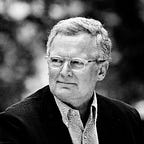Your facts are not my facts
Databases and documents are usually thought of as stores or stocks of knowledge. From the mainstream management perspective, knowledge is understood to be first created by individuals, and then shared. It becomes the asset of an organization after it is externalized and can move. This is why people often talk about the stocks and flows of knowledge.
The everyday experiences we have do not exist in a meaningful way in documents. What has happened can rarely be understood from the Excel sheets explaining the results of our actions or from the Word-documents explaining what should have been our actions.
What really takes place is hardly ever a repetition of documented practices although there would be an efficient flow of information. The actions in real life always vary and create emergent, often surprising results. As the people with whom we interact change, the context of knowing changes. In other words, there is always variation in processes, routines and actions. “You could not step twice into the same river” as Heraclitus put it. “It is not the same river and it is not the same man.”
Actions are not based on facts that are separate from, or outside of those actions and the social contexts of the actions. Are we then living in a post-fact world or have we defined the problem correctly?
What if we need to rethink what knowledge is to make sense of what is going on in the world today?
The relational perspective looks at the problem from a different point of view: knowledge is understood as socially constructed. Knowledge is not stuff accumulated and shared by individuals. When knowledge and truth are viewed as social, and temporary, then constructions of what we call understanding or knowledge are always a part of everything what is going on. Contextual, social interpretation takes the place of the objective fact. Storing knowledge in documents of some kind will capture only partial, although often important, aspects of it. The way we see things is built on the people around us, the people we interact with. It is about the community, who is “us” and who is “they”. Then “your facts are not my facts” and the other way around.
Knowledge is social. Knowledge is neither a stock nor a flow! Knowledge is the act of interacting. New and different knowledge is created when ways of interaction, and therefore patterns of relationship change.
The true knowledge assets are the patterns of interaction between its members and knowledge is destroyed when relationships are missing or are destroyed, as is happening widely in the world today. Key corporate and societal assets are lost.
Knowledge intensive life takes place in networked communication.
The process of knowing is the process of communication. The most important measurements are how the common narrative develops? An organization, or a country, should be seen as a pattern in time, a continuing story without beginnings. Everything we do is always built on what has happened before. If we don’t have common sense making, then the interpretative mechanisms are built on the world we thought we understood, the world of the past. This is why so many people prefer the past and idolize things that should not be adored.
Without understanding where we come from, our history, it is impossible to know whether we move at all, whether the flurry of daily activities is actually keeping us stuck in repetitive patterns without any progress: the same people having the same conversation again and again.
Enabling new habits of communication and improving the quality of the conversation are the most important processes of changing organizations or changing the world.
Whether the social process is called leadership, management or work, knowing is an ongoing pattern of relating. The task is to build platforms that produce connectedness and interdependence as processes that construct collective capability and responsibility. Social platforms are most meaningful as commons giving voice to multiple perspectives, making it possible to seek out, recognize and respect differences as different but equal.
Reality is no longer viewed as a singular fact of nature but as multiple and socially constructed. In a relational model, identity is constructed from being in relationships, being connected, as contrasted with the mainstream view of identity through separation. Knowledge of self and the other thus becomes viewed as co-constructed, the same way as our future is co-constructed.
Gregory Bateson argued that humankind’s fall from grace began through separations such as separating the self from the other, separating thought from emotion or separating the sacred from the secular. For Bateson and for many others today, re-engagement is essential for long-term vitality. This requires re-connecting with participative ways of knowing.
There is no common sense without common sense making!
